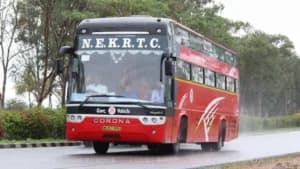The Delhi High Court recently dismissed a plea filed by a NEET-UG candidate who challenged the Medical Counselling Committee’s (MCC) decision to revise the conversion process of Scheduled Castes-Children/Women (SC-CW) seats before the third round of counselling. The Court held that rectifying a legal error before counselling cannot be seen as an administrative fault or procedural breach.
Court’s Observation on MCC’s Decision
The petitioner approached the Delhi High Court after failing to secure admission to an MBBS course under the NEET-UG 2024-25 process. The case primarily revolved around the conversion of unfilled SC-CW seats to Unreserved-Children/Women (UR-CW) seats, which was later corrected by MCC before the third round of counselling.
Read also:Delhi High Court Grants Interim Bail to Riots Accused for Daughter’s Academic Fee
Justice Dinesh Kumar Sharma, while dismissing the plea, noted:
"The correction of an unintentional legal error prior to the counselling process cannot be construed as a procedural breach or administrative fault. Petitioners have failed to demonstrate the exceptional circumstances required for intervention. The case exemplifies the courts' measured approach to reservation-related disputes, prioritizing procedural integrity and constitutional principles."
Background of the Seat Conversion Issue
Initially, the NEET 2024 Information Bulletin and Counselling Scheme stated that SC-CW seats would be converted to UR-CW seats if they remained unfilled. However, before the third round of counselling, MCC modified this approach to ensure compliance with constitutional principles and Supreme Court rulings. The revised method ensured that unfilled Scheduled Tribe-Children/Women (ST-CW) and SC-CW seats reverted to their respective categories instead of being converted to UR-CW.
The petitioner, who was eligible for admission under the Armed Forces Quota (CW category), argued that despite fulfilling eligibility criteria, they were denied a seat due to MCC’s modification of the conversion process. The petition contended that MCC’s decision violated the original rules outlined in the Information Bulletin.
Read also:Centre Approves Transfer of Justice CD Singh Back to Allahabad High Court
Authorities Defend the Change
MCC and the National Medical Commission (NMC) justified the alteration, stating that:
- The modification was made before the third round of counselling and thus did not disrupt the process.
- The conversion of seats was only applicable if candidates from the relevant reserved category had exhausted all options.
- No UR-CW seats were left vacant in the third round, making the petitioner ineligible for admission under that category.
- The original conversion method was legally inconsistent with constitutional reservation principles, necessitating rectification.
Legal Standpoint on Reservation and Seat Allocation
The High Court referred to established judicial precedents while examining the petition. It emphasized that reserved category seats must be redistributed per constitutional mandates and Supreme Court rulings to prevent any wastage of allocated seats for marginalized communities.
The Court highlighted four key conditions that need to be met for granting relief in reservation-related cases:
- No fault attributable to the candidate.
- Expeditious pursuit of legal remedies.
- Demonstrable fault by authorities with apparent rule violations.
- Proven superior merit compared to admitted candidates.
Since the petitioners failed to establish these conditions, the Court ruled against them, stating:
"No substantive fault can be attributed to the respondent authorities as the initial legal inconsistency in the conversion algorithm was proactively rectified."
Distinguishing This Case from Yashika Malik Judgment
The petitioners relied on the Yashika Malik v. University of Delhi Faculty of Medical Sciences & Ors (2024) case, where the Delhi High Court directed Delhi University to create a supernumerary seat for a CW category candidate who was wrongly denied admission in the first counselling round.
However, the Court distinguished the present case from Yashika Malik, stating:
"The current Petitioners, however, stand in a fundamentally different position. The Petitioners have failed to demonstrate any administrative mistake or procedural irregularity that prevented their participation in counselling. The Petitioners have not been barred due to documentation issues. Therefore, the judgment in Yashika Malik (supra) case bears no substantial similarity to the current circumstances."
The High Court upheld MCC’s decision, reiterating that:
- The modification in seat conversion was not a post facto rule change but a correction of an unintentional legal inconsistency.
- MCC has the discretion to amend provisions in the Information Bulletin, ensuring the counselling process adheres to constitutional guidelines.
- The interpretation of eligibility criteria and counselling procedures by MCC and DGHS is final and binding as per the Information Bulletin.
The judgment reaffirmed the judiciary’s approach to handling reservation disputes by prioritizing procedural integrity over individual grievances. It clarified that changes made to rectify errors before the counselling process are legally valid and cannot be deemed unfair.
With these observations, the Court dismissed the petition.
Case Title: Avika Shahi And Anr vs. Medical Counselling Committee And Ors















